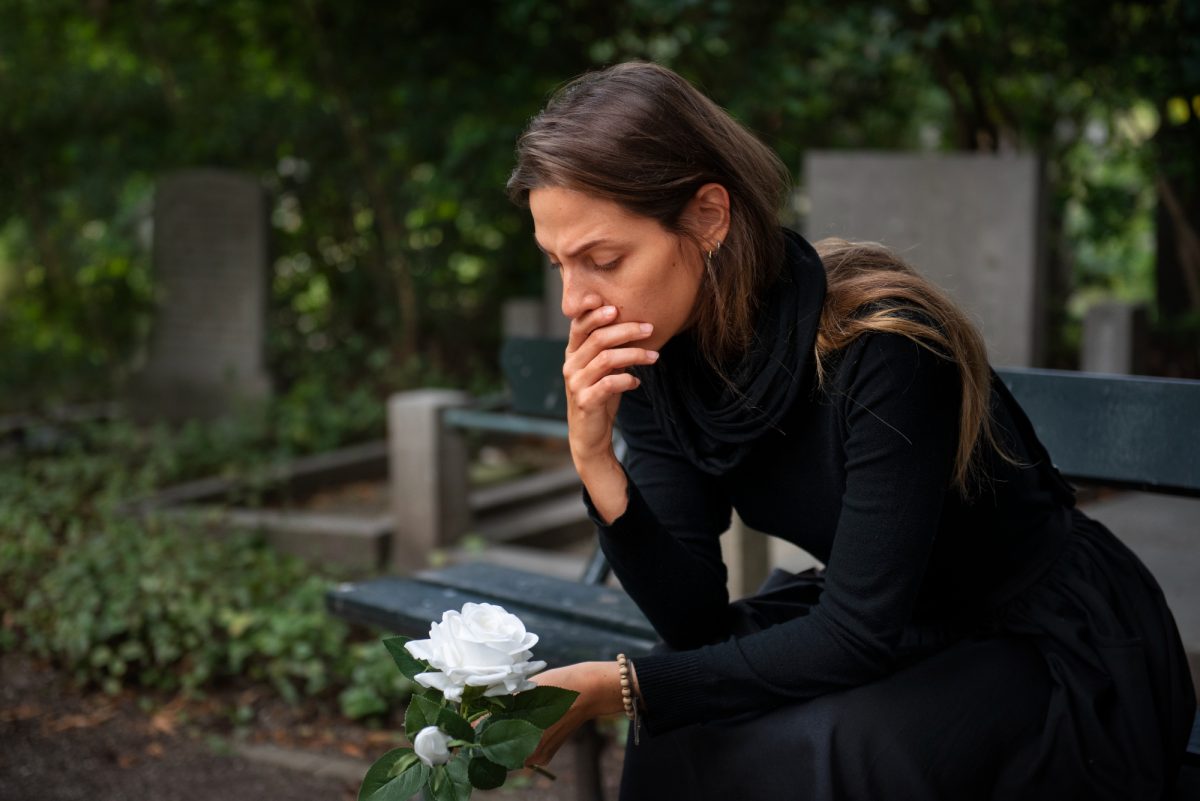The holiday season is often depicted as an opportunity to enjoy time with family and friends; for bereaved individuals, it is just a reminder of whom they lost. There is a saying that “Grief is like the ocean; it comes in waves.” So, during holidays, these waves can swell into tidal forces, which can be impossible to handle. Now, the question is, “How do you celebrate when your heart is heavy?”
The Irony of Celebration and Sorrow
The juxtaposition of collective joy and personal grief is a deep experience, especially during festive seasons. While society comes to have fun, a person can, at the same time, be struggling with deep sorrows. For instance, a family gathering full of laughter can instil loneliness in the person who has just lost a loved one. It can even amplify an individual’s grief in a way that is hard to deal with.
Research has shown that grief often increases during festivals or celebrations, as memories are associated with traditions. During the festive season, individuals are triggered and reminded of their lost ones, especially when they see empty chairs at the table or absent voices. Studies show that the emotional weight of these reminders may increase feelings of sadness and isolation. This makes it necessary for individuals to acknowledge their grief and find a means to engage themselves with joy.
Understanding this duality can help us approach individual experiences with compassion that also honours collective celebrations. If both joy and grief are accepted, it could produce meaningful connections and healing over what is otherwise often bittersweet.
Personalised Coping Mechanisms
The Quiet Respite
People grieve in their own ways, and knowing your personality may help. Introverts may feel comfortable reading, journaling, and reflective walks. Extroverts may find solace while attending group gatherings or hosting small get-togethers.
Memory Capsules
Creating a “memory capsule” can be a very healing activity. Gather items, photographs, or letters that remind you of your loved one and put them in a special box or notebook. Over time, this capsule can become a comforting reminder of how they have touched your life, providing moments of peace amidst the pain.
Mindful Rituals
Grounding activities will help you process your emotions amid this chaos. Journaling your thoughts, doing yoga, or even listing three things you are grateful for can help you create peace. Mindfulness isn’t about ignoring your grief; it’s about acknowledging it while finding pockets of peace.
The Healing Power of Rituals
Rituals have long been a way for people to navigate grief. Across cultures, there are beautiful traditions that honour loved ones during festive times:
- In Mexico, Día de los Muertos celebrates the memories of the deceased with vibrant altars and offerings
- In Japan, Bon Odori festivals pay homage to ancestors through dance and ceremonies
Creating your own holiday ritual can provide a similar sense of connection and comfort. Here are some ideas:
- Light a Candle Ceremony: Take a minute to light a candle in honour of your loved one. You can do this by yourself or with others in a group.
- Memory Tree: Place a small tree and have family and friends attach ornaments or notes to it, memorialising the deceased person. Each ornament symbolises a happy memory.
- Shared Stories: During holiday meals, invite loved ones to share a fond story or a favourite tradition connected to the person you’re grieving.
These rituals don’t replace the loss but provide a space to integrate grief into your holiday experience.
A Grief-Survivor’s Toolkit
Navigating the holidays with grief can feel overwhelming, but tools are available to help:
- Mood Trackers: Apps can help you track your emotions, giving you a better understanding of your triggers and coping mechanisms.
- Guided Meditation Apps: Several apps offer guided sessions for grief and stress.
- Downloadable Guides: Many organisations give free resources on managing holidays with grief. These guides can provide practical tips and exercises to ease your emotional burden.
Seeking Professional and Peer Support
With professional and peer support, one can handle the complex emotions involved in grief. Professional depression counselling in Harrow offers a structured environment in which people are allowed to explore their feelings with trained therapists who specialise in grief.
This therapeutic relationship provides a safe and non-judgmental space to express feelings about the loss, hence helping individuals process it and develop ways to cope with it. Indeed, studies show that clients who seek grief online counselling in Harrow report a decline in symptoms of grief as time goes by compared to those who do not receive such help.
In addition to professional help, peer support groups can also exist. People come together to share experiences and understand others. A community allows them to share their experiences and coping methods and reduces the feeling of isolation most people face during grief. Most feel relief when they understand they are not alone in these experiences, which also motivates healing.
Both professional counselling and peer support offer unique advantages: while counselling provides personalised guidance and coping techniques, peer groups foster community and shared understanding. Together, they create a comprehensive support system that empowers individuals to navigate their grief journey with resilience and hope.
Still, if you’re unsure where to start, contact online counselling in Harrow.
Learning a New Type of Holiday
The holiday season doesn’t always have to be perfect. Focus on what feels meaningful to you. Whether lighting a candle, creating a memory capsule, or simply allowing yourself to grieve in your own way.
For starters, holidays are not just about celebration. They’re about connection—connection to others, memories, and oneself. Even though the ache of loss may not leave your side, finding moments of peace and meaning can help get you.
Create a Safe Space for Personal Healing
I am Donna Tibby, a person-centred counsellor and psychotherapist providing professional consultancy online. I discuss issues like depression, anxiety, stress, and relationship problems and create a nonjudgmental space for people to discuss their feelings.
I emphasise self-discovery and personal growth. People need to find their answers and develop a higher awareness of themselves. In my bereavement counselling in Harrow and relationship support, I allow the clients to express themselves freely in a non-judgmental atmosphere.
In addition to traditional counselling sessions, I will be offering workshops soon. It will be especially valuable for those who find conventional bereavement counselling in Harrow challenging. Our workshops will promote bonding and shared experiences with others that will empower the participants with useful coping mechanisms.
As a member of BACP and NCPS, I have upheld the highest standard of professional practice. I have a professional way of dealing with issues that helps you handle your emotions effectively, leading to better well-being and renewed purpose in life.
Contact me for any help.

